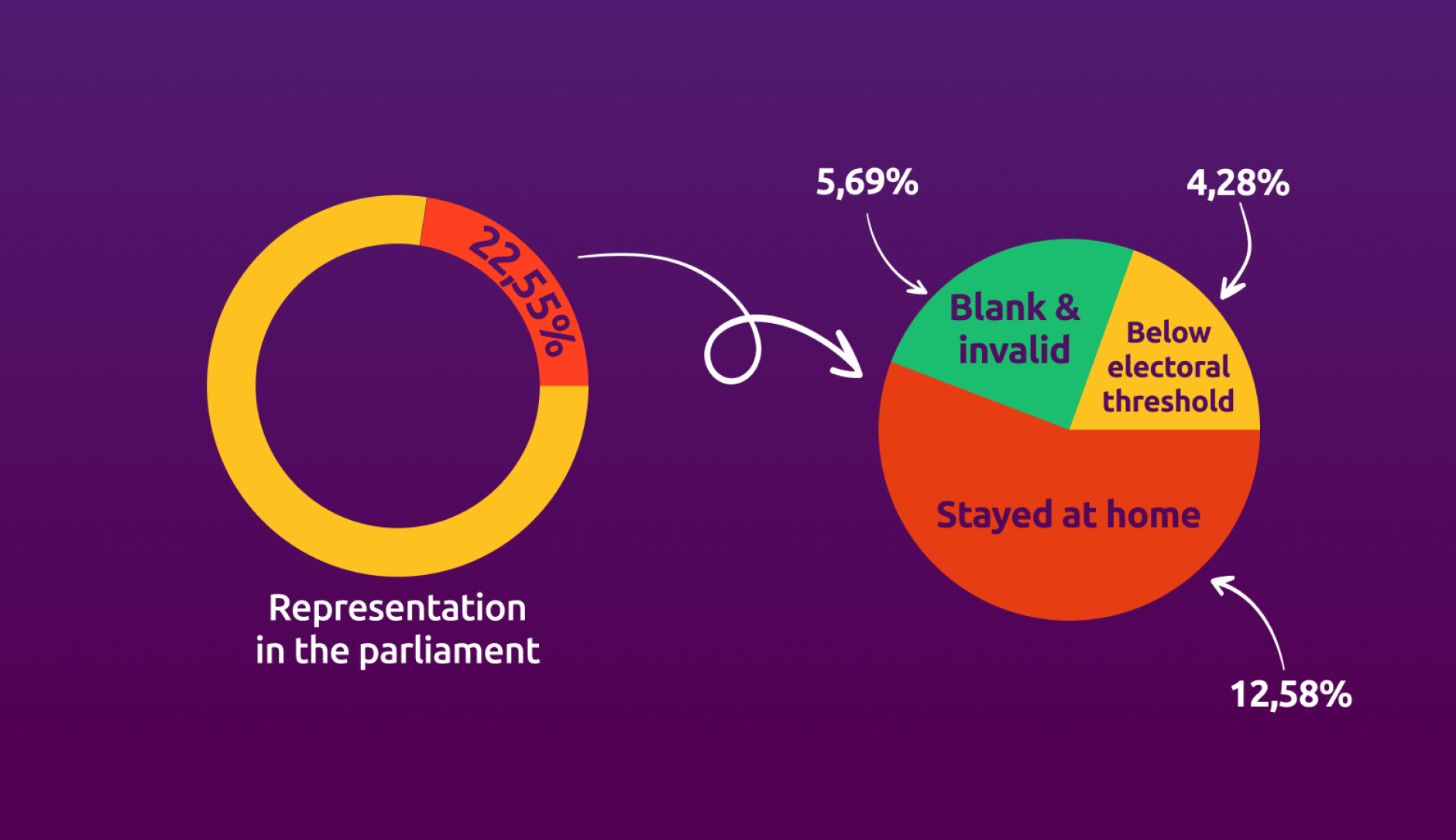We must resuscitate our democracy now
In the run-up to the June 2024 European & national elections, there was a lot of discussion on “particracy” and the necessity of democratic renewal. There were citizen initiatives such as We Need To Talk, an open letter signed by numerous prominent Belgians, and a debate in the Chamber of Representatives on the approach to party financing. But the day after the elections, all of this was forgotten.

Democratic renewal seems to have been a campaign gimmick instead of a serious intention of the political parties. Arizona likes to present itself as a “government of reform”, but democratic renewal is not on the table. While the Vivaldi government still had a minister of democratic renewal—at least on paper—that portfolio was quietly disposed of by Arizona. Now that the parties are back in power, democratic renewal no longer seems urgent.
Elections are seen as legitimizing the status quo, not as a means for citizens to choose their own government and bring about change. Despite compulsory voting, on June 9, one in eight voters—or 12.58%—remained home. Another 5.69% voted blank or invalid, and 4.28% of the votes went to parties that didn’t make the electoral threshold. This means that 22.55% of the voters are not represented in Belgian politics. An even larger part of the votes went to extremist parties, in large part as protest. That should be more than enough reason for all parties to make democratic renewal a core theme.
However, little has happened since the elections. Apart from a few marginal adjustments to party funding, the planned abolition of the Senate, and a bill to neutralise the list vote in favour of the preferential vote, everything remains the same. Real power still lies with the party headquarters, not with the Chamber of Representatives. Parties are still dabbling in political self-appointments, rather than making appointments based on knowledge and skills. Money is still overflowing the party offices, and the cabinets remain obese. Online political advertising is being restricted to some extent, but this is due to European legislation, not reforms on the parties' own initiative. A few parties flirting with the electoral threshold are listlessly searching for their raison d'être, led by party mastodons and nepo babies, while the door remains firmly closed to enthusiastic, young parties, preventing healthy competition and innovation. The party political landscape is rigid and fragmented, with the last truly new political party having emerged decades ago. Meanwhile, Brussels has been held hostage for sixteen months by quarrelling political parties in a surreal and grotesque theatre.
Unsurprisingly, people's trust in political institutions and parties is alarmingly low. Undoubtedly, the discussion about democratic renewal will resurface in the months leading up to the next elections. And just as predictably, it will fall silent again the day after the elections. The proportion of unrepresented voters and angry protest votes will grow again, and the traditional parties will look on concerned once again.
Anyone who is serious about democracy cannot be satisfied with this. That is why Volt is calling for a broad public campaign for democratic renewal. In December 2023, together with several other new parties, we already made a number of proposals to strengthen democracy and increase voter choice. Public funding must once again benefit democracy, not line the pockets of the parties. The voice of the citizens must once again be heard loud and clear through parliament, not through party offices.
Revitalizing our democracy is important for all of us. We invite everyone to join in: political parties and politicians, of course, but also civil society organizations, youth clubs, businesses, neighbourhood committees, artists, trade unions, and anyone else who is passionate about democracy.
General proposals
Establish a Council of Sages to develop a comprehensive vision for democratic renewal in time for the 2029 elections. In addition to proposals for renewing and strengthening the democratic system, new forms of democratic participation and consultation must also be addressed, as well as rules for social media.
Establish an independent electoral council to supervise the correct and fair conduct of the elections and to handle complaints.
Establish a task force to ensure that all election-related IT systems function correctly.
On more open competition and innovation in the political landscape
The electoral system must be reformed into a fully proportional system, in which every vote counts equally.
Abolish the electoral threshold and enlarge the constituencies, so that a seat becomes within reach of more parties and greater pluralism is created.
The double threshold, i.e. the requirement to collect signatures in order to participate in the elections, should be abolished or at least lowered.
All participating parties should be included in the voting tests in the media, at least on public broadcasting.
All political parties and movements are represented in the polls, at least on public broadcasting.
Participation in public broadcasting TV debates will be based on pre-determined public criteria, with the aim of providing information as broad as possible.
Adoption of the parliamentary bill to neutralise the list vote, in order to increase the independence of elected representatives.
The introduction of transnational lists for the European elections.
On financing, we advocate for
A substantial reduction in party funding to the level of comparable European countries
A ceiling on the holding of financial reserves and a ban on the purchase of real estate or investments
A reduction in the financial arrangements for elected representatives, including the abolition of tax-free expense allowances for members of parliament
A ban on multiple mandates, especially in cases where there is a risk of conflict of interest
The abolition of political cabinets and the depoliticisation of administrations
A restriction on spending on social media, even outside the election period
Public funding will be made available to parties that do not reach the electoral threshold but do obtain 2% of the votes
Parties that are not eligible for public funding will be given a higher limit for donations, but with strict transparency requirements